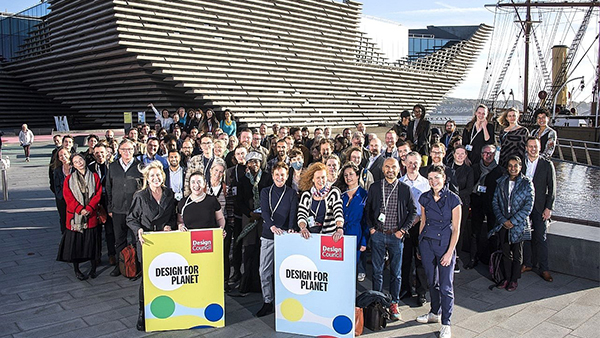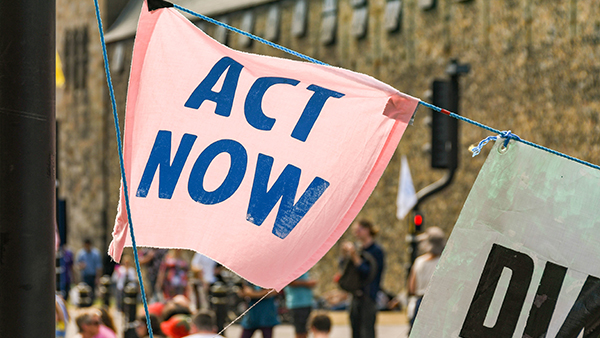There would appear to be a change in the air – and I’m not just talking about the weather. At the Commentariat event last night (fun, if slightly self indulgent) I heard someone from Spiked magazine confidently criticising the commentators’ consensus around climate change. This wouldn’t normally have been so worrying, but it was the third time in a day that I’d heard this kind of dissent.
This time last year it appeared that all the UK, and even some American, politicians were on message with what could broadly be called the Stern Hypothesis: the climate is changing, humans have contributed hugely to this change, we should and must act now to mitigate our impact and adapt to those changes we can’t mitigate. But today people seem to be emboldened to question this scientific orthodoxy.
Richard Littlejohn, one of the most widely read columnists in Britain, recently wrote about how politicians are using ‘dodgy climate change hysteria to keep increasing taxes’. His overall point is that climate change isn’t happening, that the earth’s temperature is cooling (though I’m not sure what his source is), and that the Government’s agenda to implement green taxes is hurting the man on the Clapham omnibus (or rather in the 2001 Renault Espace).
Indeed, even looking to the American elections, climate change doesn’t seem to be an issue in the interminable Clinton v. Obama contest, and their increasing tone of protectionism doesn’t bode well for their commitment to global issues.
In some ways both Littlejohn and the American politicians are right. As people’s finances are increasingly stretched, and a downturn in the housing market means that people feel less well off, they may feel that all this talk of paying more taxes to facilitate climate change mitigation, or changing their lifestyles to reduce emissions and waste, is too much to ask when they are concerned about more pressing problems like paying their mortgage.
It was always going to be difficult to empower the individual to feel responsible for their own contributions to climate change, particularly when changes in global politics means that many less developed countries are justifiably piqued when asked to reduce their emissions (and economic growth) by developed nations who got us into this trouble in the first place.
Sceptics like Littlejohn are helped by the misnomer of ‘global warming’ – in fact climatologists would say that there is no inconsistency with the argument that humans are responsible for changes in our global temperatures and a drop in temperatures – the point is that our actions are impacting on the world, and this may take the form of some cooling and some warming, the point is that the climate is changing.
I don’t believe that ethical living, as some put it, is incompatible with a retrenchment in the family finances, quite the opposite. There are ways to live a full life that don’t involve driving a petrol guzzling car, or buying clothes made by children in distant countries, and there are ways to make such a lifestyle affordable as well. Paying more taxes to enable the government to deal with those elements that are outside our control, like what happens to the waste we inevitably create, is just a further cost that must be factored in.
There is a third, more hopeless view, falling somewhere between Stern and Littlejohn, which argues that it is pointless to tinker with car emissions and plastic bag bans because people will only make drastic changes in their lifestyle when they are forced to, the tragedy is, that assuming the science is right, by this time it will be far too late.
Related articles
-
Regenerative organisations: the time is now, the place is here
Joanna Choukeir
Regenerative organisations are vital to our regenerative future. The time is now for the RSA to emerge as such an institution.
-
A design revolution for the climate emergency
Joanna Choukeir
Joanna Choukeir on Design for Planet, the global gathering of designers during COP26, and the changes design must make.
-
The public are ready to go further and faster on net zero
Anthony Painter
The public are ahead of policy-makers and, indeed, most of the business world. COP26 is an enormous opportunity to catch up. Global leaders should take it.




Join the discussion
Comments
Please login to post a comment or reply
Don't have an account? Click here to register.
Thanks for this Duncan. I think it's a really important point and one I will return to some time in the future
I've been seeing increasingly sophisticated use of the "teach the controversy" technique ( http://dericbownds.net/2007/01... ) recently, where no-one denies that human induced climate change is happening but each blames whatever they don't like - such as the article in the Independent explaining how Organic food makes climate change worse and the Vegetarian society siding with agri-business on greenhouse gasses on the BBC. It's highly disconcerting if you are actively trying to "be good" and can't find anyone to trust on the definition of "goodness".
http://www.independent.co.uk/e...
http://news.bbc.co.uk/1/hi/sci...
I attended the “Question Time on Sustainable Design and Development” on Wednesday evening and found the discussions very interesting. Griff Rhys Jones made an excellent chairman, combining effervescence, levity and intellectualism with enviable ease. There seemed to be ‘scant’ agreement about the impact of personal ‘pro-social’ activity in relation to carbon off-setting and although we might all have a little chuckle at personal wind turbines or solar panels as the latest self-righteous housing adornments, it is as little too easy to just reject social responsibility in relation to the environment as something of a fashion statement of the liberal middle class.
I was subsequently very encouraged to hear that Atos Origin (my employer) has announced a project with the RSA “the first ever trial to enable real-time calculations of personal carbon emissions” and how this relates to the RSA’s CarbonDaq trading platform.
I wonder if you could provide some additional insight into this and the overarching work of the RSA’s CarbonLimited project?